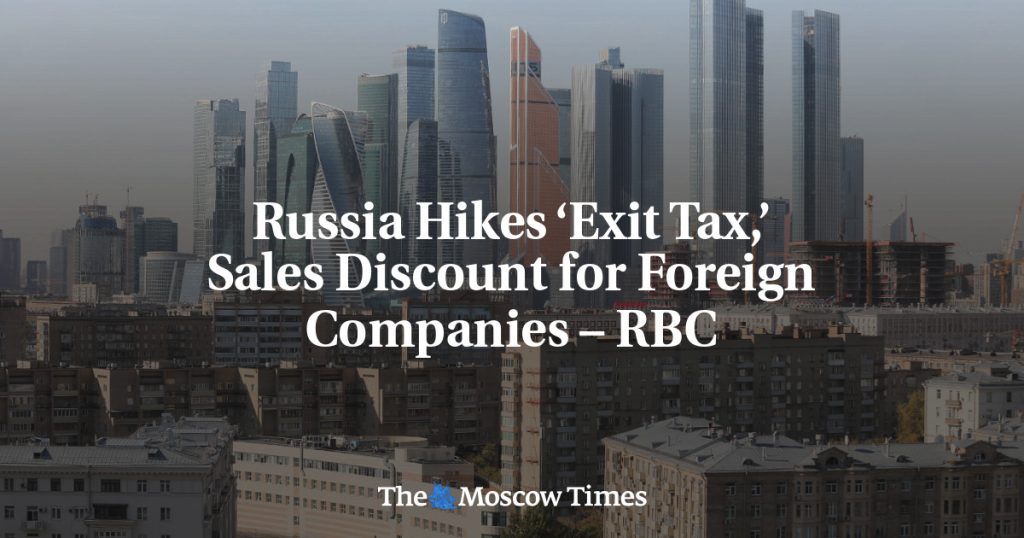Russia has implemented new rules raising the exit tax and minimum discount for foreign companies seeking to pull out of the country, in an effort to prevent foreign money from leaving despite sanctions. Since December 2022, foreign companies have been forced to sell their assets at steep discounts to Russian buyers, with exit fees charged based on the transaction value. The new rules will increase the “voluntary contributions” to the Russian treasury from 15% to 35%, with payments of 25% within the first month, 5% within a year, and the last 5% within two years. Russian assets of foreign companies will now be sold at a 60% discount, up from the previous 50%.
Additionally, the new rules will require President Vladimir Putin to personally approve deals worth more than 50 billion rubles. These changes were adopted by a government commission on foreign investments, with the goal of retaining foreign businesses and money in Russia. The state coffers have already received nearly 140 billion rubles from these “voluntary contributions” by exiting foreign companies from January to August 2024. There were 34 foreign companies that sold their Russian assets in the first half of the year, totaling $1.89 billion, which is lower than the 97 deals worth $11.14 billion made throughout 2023.
Hundreds of Western companies have either fully exited or scaled back operations in Russia following the country’s invasion of Ukraine in 2022. The increasing tensions between Russia and the West have led to growing concerns among foreign businesses operating in Russia, as they face pressure to exit the market amidst sanctions and political instability. The decision to raise the exit tax and discount for foreign companies further complicates the situation for international businesses, making it more challenging for them to withdraw from their Russian investments.
The implementation of stricter rules for foreign companies seeking to exit Russia highlights the government’s efforts to retain foreign money in the country during a time of economic and political uncertainty. By increasing the exit tax and discount rates, Russia aims to discourage foreign businesses from withdrawing their investments and ultimately provide much-needed financial resources amid the ongoing conflict with Ukraine. The government’s decision to require personal approval from President Putin for large deals adds another layer of oversight and control over foreign investments in Russia, signaling a more centralized approach to economic decision-making.
The uncertain regulatory environment in Russia, coupled with escalating tensions with Western countries, has led to increased challenges for foreign businesses operating in the country. Amidst the geopolitical turmoil, companies are facing difficult decisions about their presence in Russia, weighing the risks and benefits of continuing operations versus exiting the market. The government’s tightening of exit rules and imposition of higher taxes and discounts further complicates the situation for foreign companies, adding to the existing challenges they are already facing in navigating the Russian business landscape.
In conclusion, Russia’s new rules on exit taxes and discounts for foreign companies reflect the government’s efforts to retain foreign investments in the country in the face of mounting geopolitical tensions and economic pressures. The escalating conflict with Ukraine has further strained relations between Russia and the West, leading to increased scrutiny of foreign businesses operating in Russia. The decision to raise the exit tax and discount rates sends a clear message to international companies about the challenges of doing business in Russia and the importance of navigating the regulatory landscape carefully. As the situation continues to evolve, foreign companies will need to carefully consider their options and strategies for operating in Russia amidst the changing political and economic climate.















